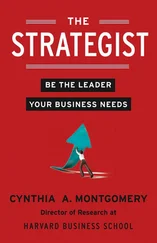That day, Josh was in the bathroom and Kamara was sitting at the kitchen table looking through his homework when she heard a sound behind her. She turned, thinking it was Josh, but Tracy appeared, curvy in leggings and a tight sweater, smiling, squinting, pushing away long dreadlocks from her face with paint-stained fingers. It was a strange moment. Their eyes held and suddenly Kamara wanted to lose weight and wear makeup again. A fellow woman who has the same thing that you have? her friend Chinwe would say if she ever told her. Tufia! What kind of foolishness is that? Kamara had been saying this to herself, too, since Monday of last week. She said this even as she stopped eating fried plantains and had her hair braided in the Senegalese place on South Street and began to sift through piles of mascara in the beauty supply store. Saying those words to herself changed nothing, because what had happened in the kitchen that afternoon was a flowering of extravagant hope, because what now propelled her life was the thought that Tracy would come upstairs again.
Kamara put the chicken strips in the oven. Neil added three dollars an hour for the days when he did not come home on time and she cooked Josh’s dinner. It amused her, how “cooking dinner” was made to sound like difficult work when it was really a sanitized string of actions: opening cartons and bags and placing things in the oven and microwave. Neil should have seen the kerosene stove she had used back home with its thick gusts of smoke. The oven beeped. She arranged the chicken strips around the small mound of rice on Josh’s plate.
“Josh,” she called. “Dinner is ready. Would you like frozen yogurt for dessert?”
“Yes.” Josh grinned and she thought about the curve of his lips being exactly like that of Tracy’s. She hit her toe against the edge of the counter. She had begun to bump into things too often since Monday of last week.
“Are you okay?” Josh asked.
She rubbed her toe. “I’m fine.”
“Wait, Kamara,” Josh knelt down on the floor and kissed her foot. “There. That’ll make it go away.”
She looked down at his little head lowered before her, his hair in helpless curls, and she wanted to hug him very close.
“Thank you, Josh.”
The phone rang. She knew it was Neil.
“Hi, Kamara. Is everything okay?”
“Everything is fine.”
“How’s Josh? Is he scared about tomorrow? Is he nervous?”
“He’s fine. We just finished the practice.”
“Great.” A pause. “Can I say a quick hi?”
“He’s in the bathroom.” Kamara lowered her voice, watching Josh turn off the DVD player in the den.
“Okay. I’ll see you soon. I just literally pushed my last client out of the office. We’ve managed to get her husband to agree to settle out of court and she was starting to linger too much.” He laughed shortly.
“Okay then.” Kamara was about to put the phone down when she realized that Neil was still there.
“Kamara?”
“Yes?”
“I’m a little concerned about tomorrow. You know, I’m actually not sure how healthy that kind of competition is at his age.”
Kamara ran the tap and rinsed away the last streaks of dark green liquid. “He’ll be fine.”
“I hope going to Zany Brainy takes his mind off the competition for a little while.”
“He’ll be fine,” Kamara repeated.
“Would you like to come to Zany Brainy? I’ll drop you off at home afterwards.”
Kamara said she would rather go home. She didn’t know why she had lied about Josh being in the bathroom; it had slipped out so easily. Before, she would have chatted with Neil and probably gone along with them to Zany Brainy, but she didn’t feel like having that get-along relationship with Neil anymore.
She was still holding the phone; it had started to buzz noisily. She touched the PROTECT OUR ANGELS sticker that Neil had recently placed on the cradle, a day after he called, frantic, because he had just seen a photo on the Internet of a child molester who had recently moved to their neighborhood and who looked exactly like the UPS delivery man. Where is Josh? Where is Josh? Neil had asked, as if Josh would have been anywhere else but somewhere in the house. Kamara had hung up feeling sorry for him. She had come to understand that American parenting was a juggling of anxieties, and that it came with having too much food: a sated belly gave Americans time to worry that their child might have a rare disease that they had just read about, made them think they had the right to protect their child from disappointment and want and failure. A sated belly gave Americans the luxury of praising themselves for being good parents, as if caring for one’s child were the exception rather than the rule. It used to amuse Kamara, watching women on television talk about how much they loved their children, what sacrifices they made for them. Now, it annoyed her. Now that her periods insisted on coming month after month, she resented those manicured women with their effortlessly conceived babies and their breezy expressions like “healthy parenting.”
She put the phone down and tugged at the black sticker to see how easily it would come off. When Neil interviewed her for the job, the NO TO GUNS sticker had been silver, and it was the first thing she told Tobechi about, how strange it was to watch Neil smooth it over and over again, as if in a ritual. But Tobechi was not interested in the sticker. He asked her about the house, details she could not possibly know. Was it a colonial? How old was it? And all the while his eyes were shining with watery dreams. “We will live in a house like that one day in Ardmore, too, or another place on the Main Line,” he said.
She said nothing, because it was not where they lived that mattered to her, it was what they had become.
They met in university at Nsukka, both of them in their final years, he in engineering and she in chemistry. He was quiet, bookish, smallish, the kind of boy parents said had “bright prospects.” But what drew her was the way he looked at her with awed eyes, eyes that made her like herself. After a month, she moved into his room in the Boys’ Quarters on a tree-lined avenue of the campus and they went everywhere together, climbing on the same okada, Kamara lodged between Tobechi and the motorcyclist. They took bucket baths together in the bathroom with slimy walls, they cooked on his little stove outside, and when his friends began to call him “woman wrapper,” he smiled as if they did not know what they were missing. The wedding, which took place shortly after they completed their National Youth Service, was hurried because an uncle, a pastor, had just offered to help Tobechi get an American visa by including his name in a group going for a conference of the Evangelical Faith Mission. America was about hard work, they both knew, and one would make it if one was prepared to work hard. Tobechi would get to America and find a job and work for two years and get a green card and send for her. But two years passed, then four, and she was in Enugu teaching in a secondary school and doing a part-time master’s program and attending the christenings of friends’ children, while Tobechi was driving a taxi in Philadelphia for a Nigerian man who cheated all his drivers because none of them had papers.Another year passed. Tobechi could not send as much money as he wanted to because most of it was going into what he called “sorting his papers.” Her aunties’ whisperings became louder and louder: What is that boy waiting for? If he cannot organize himself and send for his wife, he should let us know, because a woman’s time passes quickly! During their telephone conversations, she heard the strain in his voice and she consoled him and longed for him and cried when she was alone until the day finally came: Tobechi called to say that his green card was on the table in front of him and that it was not even green.
Читать дальше











